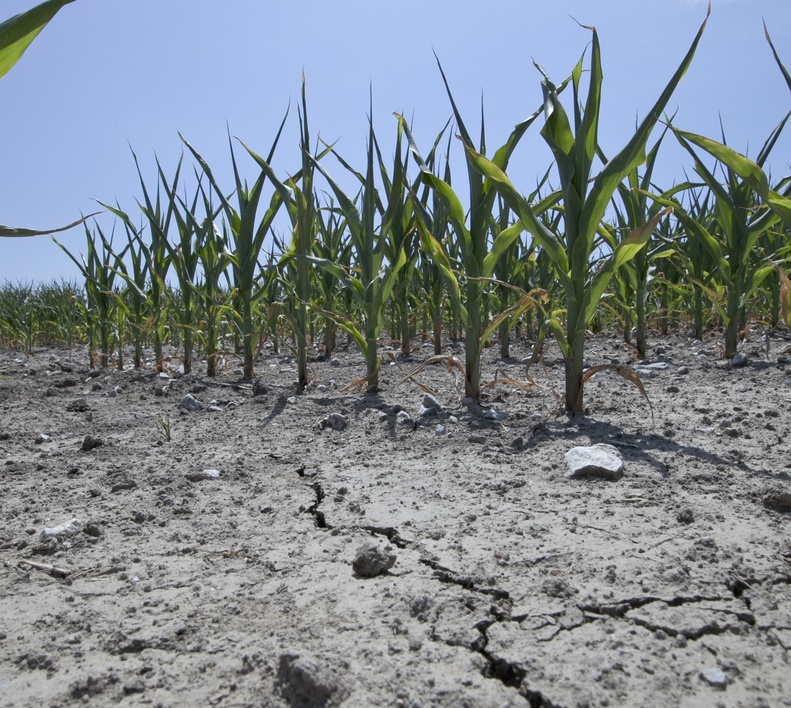Congress’ response to the drought afflicting the farm belt gets curiouser and curiouser. By now it’s clear that the main impact is on the corn crop, about 40 percent of which usually goes to feed cows, pigs and chickens. As supply shrinks, prices spike, and producers of meat and poultry get hit.
The House of Representatives has responded with $383 million in aid to cattle producers, paid for by cutting back soil conservation programs. In short, the plan would bail out businesses hurt by the current natural disaster — at the risk of rendering America’s farmland a bit more vulnerable to future ones.
There’s a better way. Instead of handing animal producers cash compensation for higher corn prices, why not take action to reduce prices in the first place? There’s not much the federal government can do about the weather, but it can adjust policies that artificially boost the demand for corn, sticking traditional users such as livestock with higher prices, which they pass on to grocery shoppers.
We refer to the Renewable Fuel Standard, the program that requires blending 13.2 billion gallons of corn-based ethanol into motor fuels this year.
Meeting the ethanol mandate usually consumes about a third of the entire corn crop, according to the Agriculture Department.
Federally supported ethanol is a key factor in the steady rise of corn prices since 2005; this year, with supplies likely to be short because of drought, ethanol’s impact on prices will be magnified.
Environmental Protection Agency Administrator Lisa P. Jackson has the power to ameliorate the situation by waiving all or part of the current-year ethanol mandate, as livestock producers and a bipartisan coalition of 135 House members, led by Bob Goodlatte, R-Va., are requesting. She should use that authority.
To be sure, the precise increase in corn prices because of ethanol is disputed; one shouldn’t exaggerate. A study by economist Bruce Babcock of Iowa State University says that waiving the mandate entirely would cut corn prices 4.6 percent in the short run.
That doesn’t sound like much until you consider that a livestock industry economist, Thomas Elam, estimates that would save producers $1 billion. Discounting that projection by half to correct for industry bias still yields a figure, $500 million, greater than the direct aid the House is contemplating.
The broader lesson is that dictating a certain level of ethanol usage from Washington was bound to distort markets for food, land and energy.
Federal mandates enrich the ethanol business and those who supply it, at the expense of all competing uses for cropland, water and capital.
For all that, the environmental benefits are modest at best. When this crisis passes, Congress still will have work to do reforming the unwise system it created.
Editorial by The Washington Post
Send questions/comments to the editors.



Success. Please wait for the page to reload. If the page does not reload within 5 seconds, please refresh the page.
Enter your email and password to access comments.
Hi, to comment on stories you must . This profile is in addition to your subscription and website login.
Already have a commenting profile? .
Invalid username/password.
Please check your email to confirm and complete your registration.
Only subscribers are eligible to post comments. Please subscribe or login first for digital access. Here’s why.
Use the form below to reset your password. When you've submitted your account email, we will send an email with a reset code.